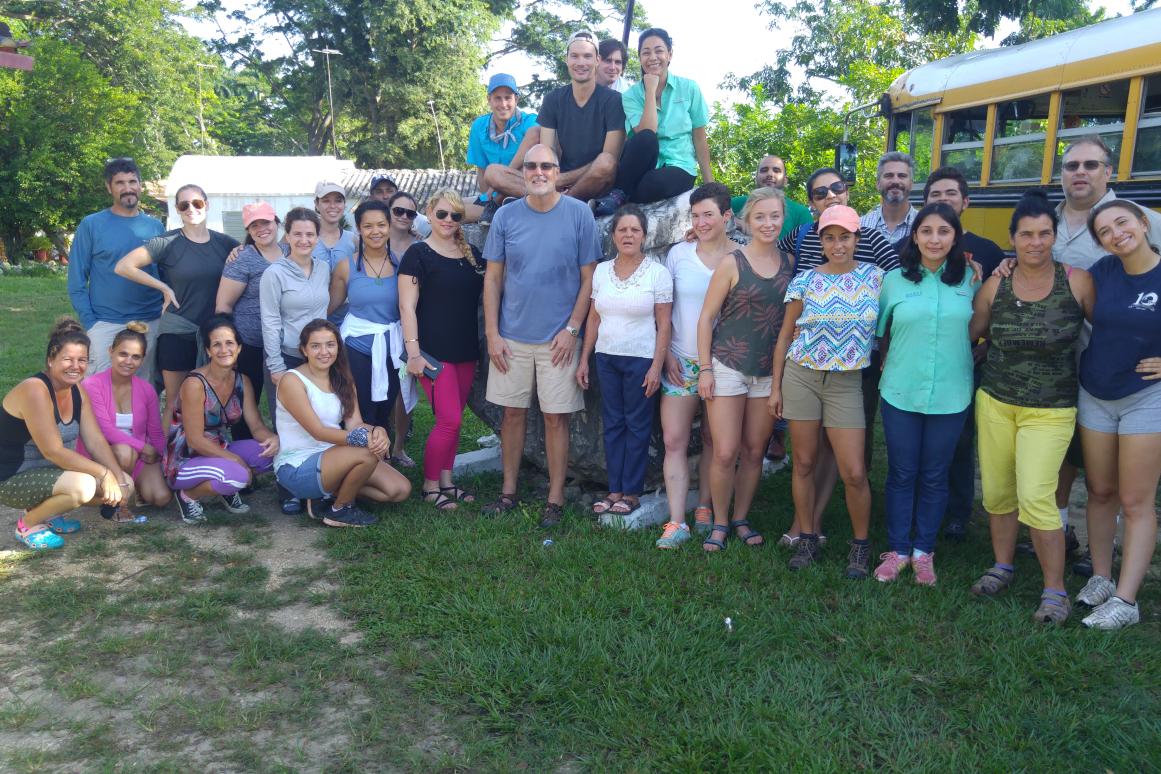HRI Student Workshop Teaches International Collaboration in Recovering Cuba

CORPUS CHRISTI — The Harte Research Institute (HRI) for Gulf of Mexico Studies hosted its fourth Student Workshop on International Coastal and Marine Management (SWIMM) Oct. 7-16 in northern central Cuba. The workshop brought 18 diverse graduate students from the United States, Mexico and Cuba together in Caguanes National Park to study environmental recovery in the aftermath of 2017’s devastating Hurricane Irma.
The workshop was conducted in partnership with the with the Center for Marine Research at the University of Havana.
“The program was designed to bring together future leaders in marine science and policy to work on a professional project, gain experience and develop relationships that will extend into their careers,” said HRI Endowed Chair for Marine Policy and Law Dr. Richard McLaughlin.
The students, who come from a variety of research backgrounds — from biology to anthropology to civic planning — convened to begin the process of developing a report card to help community stakeholders better understand the health of their ecosystem after the disaster. Previous SWIMM participants worked in the park during their workshop in July 2017, two months before Hurricane Irma struck the island in early September and devastated Caguanes National Park and La Picadora, the model agro-tourism community that hosted them.
“It was a Category 5 storm that transitioned to Category 4 right as it was passing over, and just decimated the area,” said Dr. Mark Besonen, HRI Associate Research Scientist and workshop organizer. “We decided to return to look at the environmental recovery of the area after the hurricane through the development of this environmental report card.”
Students engaged with stakeholders in local communities, agriculture, fishing and park employees to develop preliminary indicators for the report card — quantifiable factors like plant and animal species of interest, water quality, coastline impacts and commercial and recreational fisheries that can be monitored to determine ecosystem health. They then presented their findings at the MarCuba 2018 conference in Havana and will continue working with park officials on long-term monitoring strategies. Research products like the report card help communities to better monitor and understand the health of their environment by tracking it over time with results that are easy for many community stakeholders to understand.
Graduate students from Cuba, Mexico, and the US have traditionally found it very difficult to study in other Gulf nations’ universities, facing obstacles that range from political and economic restrictions to visa policies. One of HRI’s missions is to support international Gulf research by cultivating collaboration and partnerships through workshops like SWIMM, reaching students while they’re still in the process of developing their own career path and networks.
“It’s definitely a unique experience that I haven’t found in other workshops or internships,” said Diana Del Angel, a doctoral student in HRI’s socioeconomics group who participated in the workshop. “You learn a lot about better understanding and navigating everything from cultural differences to linguistic styles. Even on coastal management topics there are some issues we all have in common, and some we deal with very differently. It teaches perspective.”
An example of international exchange: Del Angel celebrated her birthday while at the SWIMM workshop and fellow students serenaded her three times with a song from each of the participating nations.
“Living together for a week and working on a very intense project like this — the barriers start to fall away,” Del Angel said.
SWIMM was created in 2010 by HRI and supported through the Furgason Fellowship fund as a series of workshops focused on encouraging international collaboration on priority coastal and marine management issues in the Gulf of Mexico by bringing together graduate students for peer-to-peer exchanges, shared learning, and intensive interactions with scientists, managers, and practitioners. In 2018, SWIMM received funding from the National Academies of Sciences, Engineering and Medicine’s Gulf Research Program to host additional SWIMM workshops through 2023.
